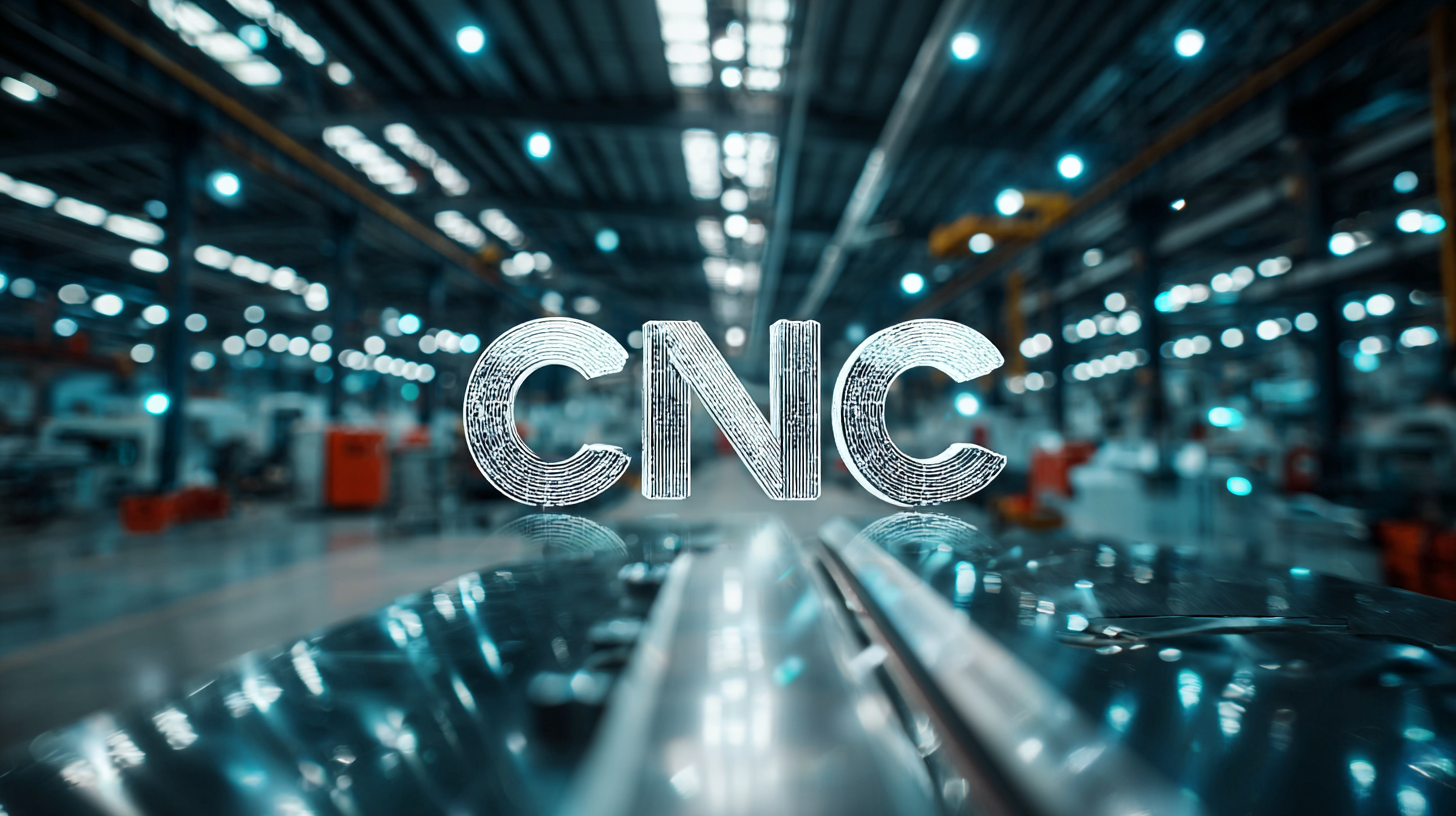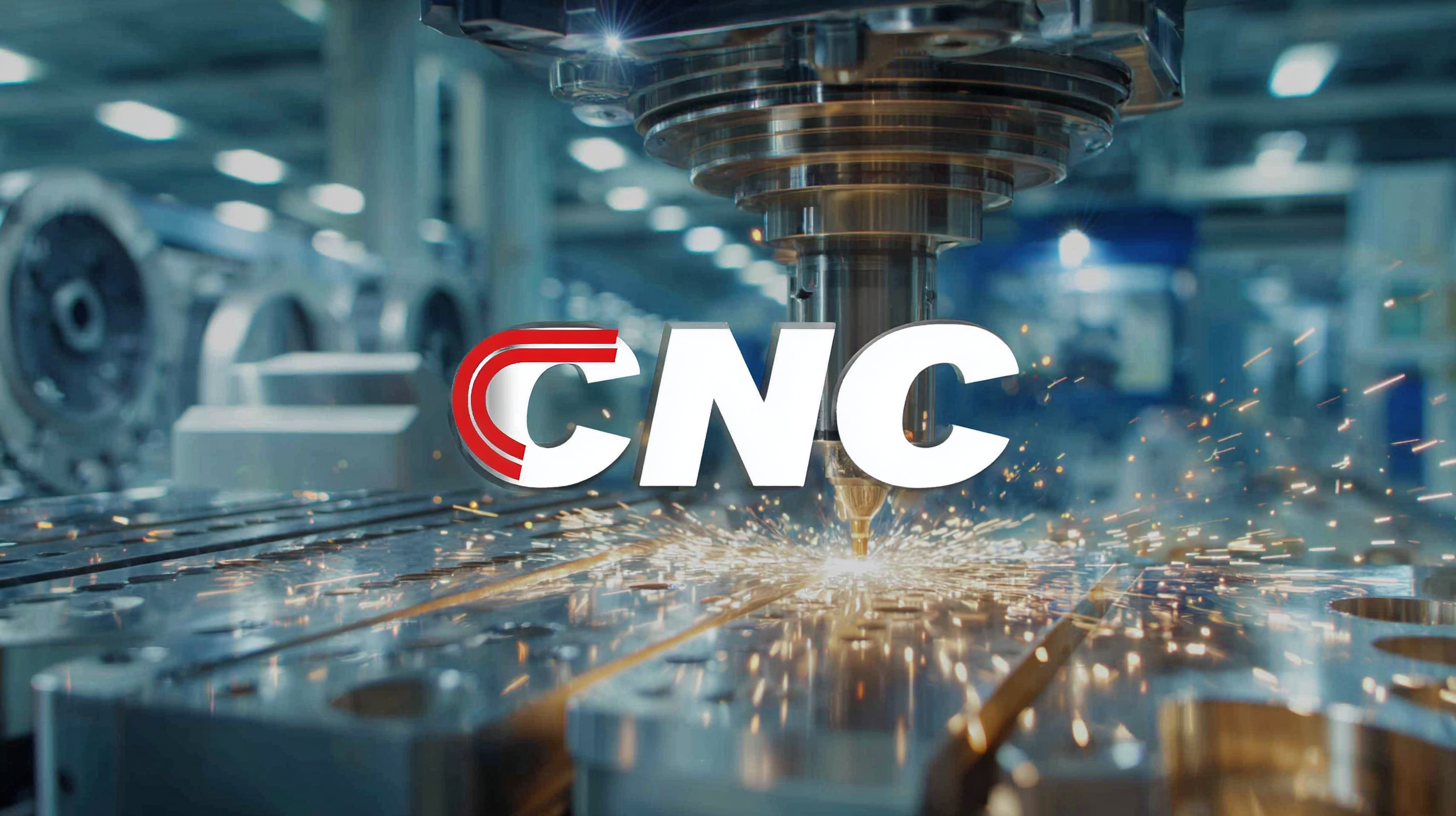
- sales@bjbod.com
- Mon - Sat at 7:00AM to 9:00PM

As the global demand for precision engineering continues to surge, China's custom CNC parts manufacturing sector has emerged as a formidable force, dominating the landscape with unparalleled efficiency and innovation. According to a recent report by Market Research Future, the CNC machining market is expected to reach USD 100 billion by 2025, with Asia-Pacific projected to hold the largest share. China's competitive edge lies not only in its advanced manufacturing technologies but also in its ability to produce custom CNC parts at scales and prices that many Western countries struggle to match. The integration of Industry 4.0 principles, such as automation and real-time data analytics, has further enhanced productivity and quality control, solidifying China's position as a leader in the global supply chain. In this blog, we will delve into the factors contributing to China's unparalleled growth in custom CNC parts manufacturing and explore the implications for industries worldwide.

The rise of China’s custom CNC parts manufacturing industry is not merely a byproduct of its vast manufacturing capabilities; it reflects a strategic evolution poised to reshape global supply chains. As industries worldwide seek precision and efficiency, China's CNC parts manufacturing is increasingly positioned as a go-to solution for high-quality, cost-effective parts. This sector, already robust, is set to witness significant growth, aligning with trends across various manufacturing fields. The global CNC plasma cutting machines market, for example, is projected to expand steadily, coinciding with the rising demand for precision components necessary for sophisticated machinery.

Leveraging advanced technologies and a skilled workforce, China’s custom CNC parts manufacturers are not only catering to domestic needs but are also crucial players in international markets. The increased demand for custom parts, influenced by industries from automotive to electronics, underscores the importance of China's role in modern manufacturing. As countries navigate trade complexities, such as tariff hikes and import adjustments, China's manufacturing sector stands as a beacon of reliability and innovation, fulfilling the exacting standards of global industries. The continued ascent of this sector highlights its pivotal contribution to both local economies and the global market landscape.
The rise of China as a leader in custom CNC parts manufacturing is propelled by the integration of innovative technologies that enhance both quality and efficiency in production. Modern advancements such as artificial intelligence and machine learning are revolutionizing the manufacturing landscape, allowing companies to optimize their machining processes. These technologies enable real-time monitoring and predictive maintenance, minimizing downtime and ensuring precision in every component produced.

Moreover, the adoption of Industry 4.0 principles is reshaping traditional manufacturing paradigms. Smart factories equipped with IoT devices facilitate seamless communication between machines and human operators, leading to data-driven decision-making. This digitization not only boosts production speeds but also improves quality control, as manufacturers can swiftly identify and rectify any deviations from standards.
The synergy between skilled labor and cutting-edge technology places China's CNC parts manufacturing at the forefront of global competitiveness, setting new benchmarks for the industry.
China’s custom CNC parts manufacturing is experiencing a remarkable surge as global markets increasingly embrace its capabilities. The precision and efficiency of Chinese manufacturers allow them to produce high-quality components at competitive prices, attracting industries ranging from aerospace to automotive. As technologies advance, companies across the globe recognize the importance of integrating China's manufacturing expertise into their supply chains, leading to a shift in how products are designed and produced.
Moreover, the growing demand for customization in products presents a significant opportunity for Chinese CNC manufacturers. Businesses are looking for tailored solutions that can enhance their competitive edge, and Chinese firms are well-equipped to respond to this demand. With investments in advanced machinery and skilled craftsmanship, these manufacturers are not only meeting the requirements of international clients but also setting new standards in innovation and service delivery. As the world continues to move towards digitalization and automation, the landscape of custom parts manufacturing will further transform, solidifying China's position as a global leader in the sector.
| Market Region | Estimated Revenue (USD Millions) | Growth Rate (%) | Main Industries |
|---|---|---|---|
| North America | 2,500 | 4.5 | Aerospace, Automotive, Medical |
| Europe | 3,200 | 5.0 | Consumer Electronics, Machinery, Defense |
| Asia-Pacific | 1,800 | 6.2 | Telecommunications, Transportation, Robotics |
| Latin America | 400 | 3.0 | Agricultural Equipment, Mining |
| Middle East & Africa | 300 | 2.8 | Oil & Gas, Infrastructure |
In recent years, China has established itself as a powerhouse in the custom CNC parts manufacturing sector, a feat largely attributed to its rigorous quality assurance practices. According to a report by Research and Markets, the CNC machining market in China is projected to reach approximately $23.9 billion by 2026, growing at a CAGR of 7.5%. This growth is driven by the adoption of advanced technologies and stringent quality control measures implemented across the industry.
To maintain high standards, manufacturers in China are increasingly utilizing methodologies like Six Sigma and Total Quality Management (TQM). These practices ensure that every component meets precise specifications, which is vital in industries such as aerospace and automotive, where precision is paramount. Implementing these strategies not only enhances product reliability but also boosts customer confidence, an essential factor for international partnerships.
**Tip:** For companies seeking reliable CNC part suppliers, consider those who provide traceability documentation and adhere to international quality standards like ISO 9001. **Tip:** Regular audits and continuous improvement practices can help manufacturers stay competitive and responsive to market demands, ensuring ongoing quality enhancements.
As the landscape of manufacturing continues to evolve, sustainability is becoming a driving force in the custom CNC parts industry. According to a report by Allied Market Research, the global CNC machining market is expected to reach $100 billion by 2027, growing at a compound annual growth rate (CAGR) of 6.5%. This growth creates significant opportunities for manufacturers to adopt sustainable practices, reduce waste, and improve energy efficiency. As companies increasingly focus on environmental responsibility, those that can integrate sustainability into their CNC processes will not only meet regulatory pressures but also appeal to a more conscientious customer base.
In addition to sustainability, global collaboration is redefining opportunities in CNC machining. With advancements in technology and communication, manufacturers can source materials and collaborate with partners across borders more effectively. A study by McKinsey found that companies engaged in global collaboration are 1.5 times more likely to achieve higher levels of innovation. This collaborative approach can lead to sharing best practices in sustainability, allowing manufacturers in different regions to learn from each other's successes and challenges. As China continues to dominate the custom CNC parts manufacturing sector, it stands at the forefront of this global networking, driving innovations that can lead to sustainable, efficient, and high-quality production methods.